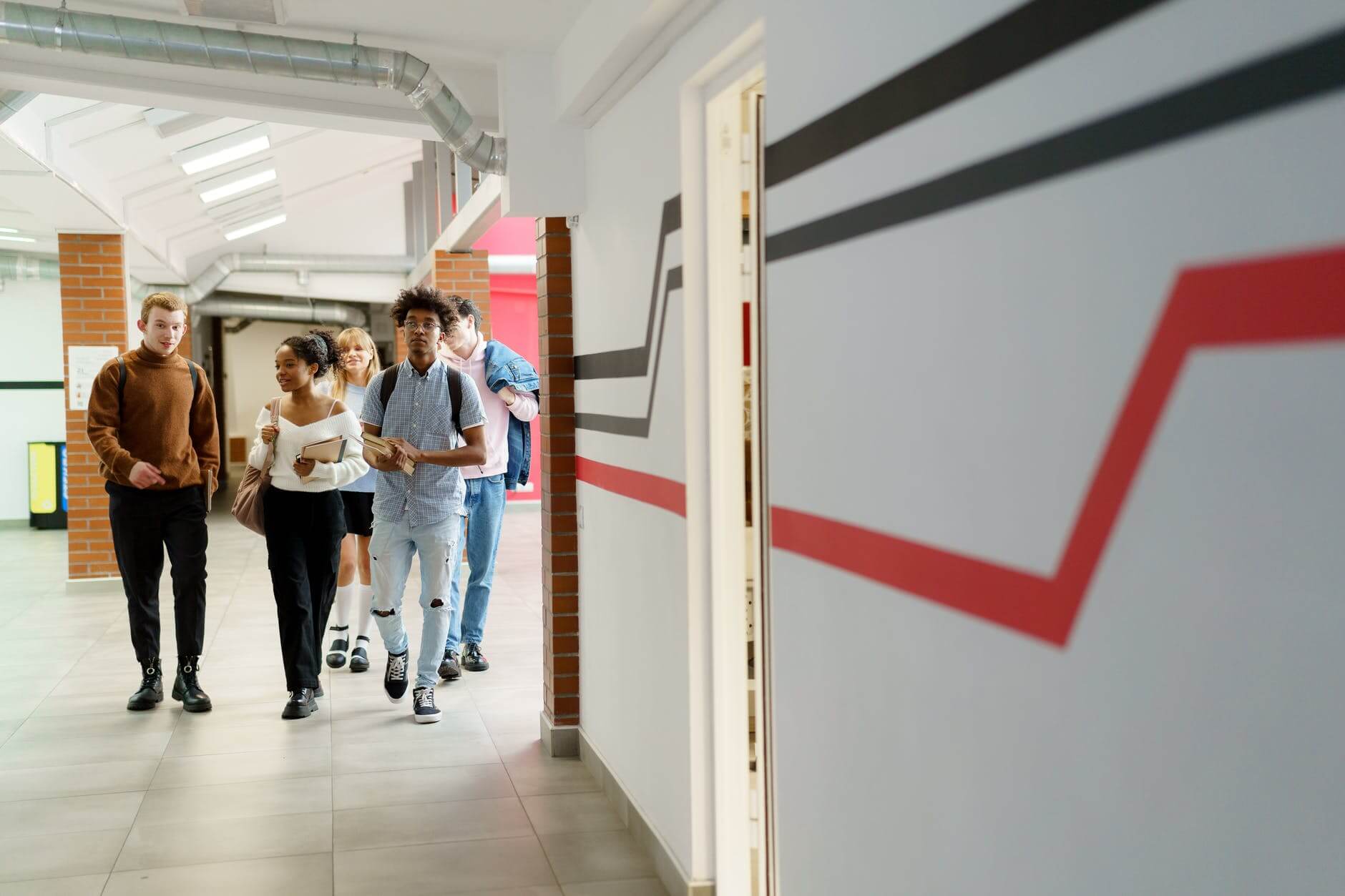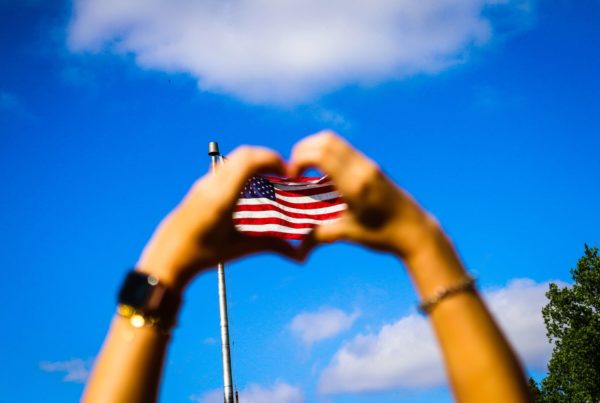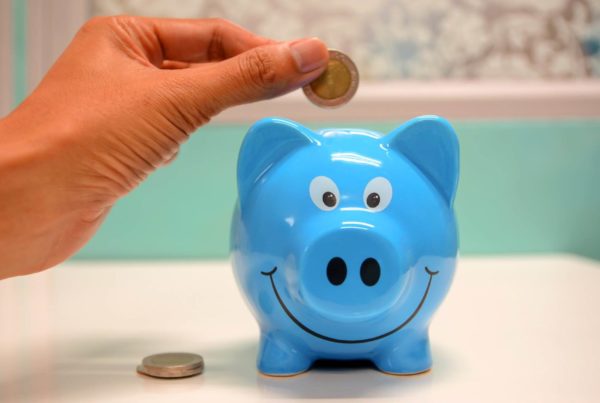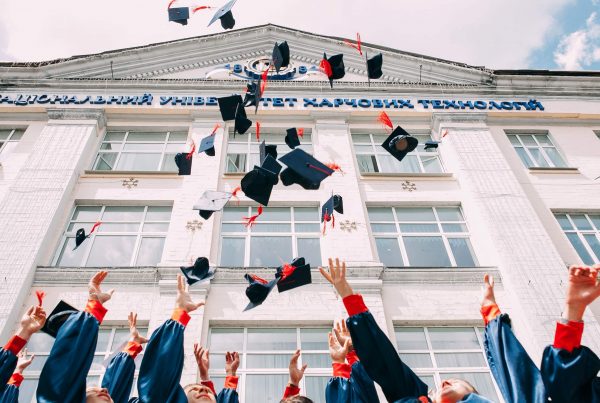
Chapter 1
Overview
Travelling to Australia
The Covid-19 pandemic has created a major hindrance for travelers to visit various countries, as well as for students. It has caused a lot of changes in the way we travel to a place, and it starts by wearing a mask. But to travel to international countries, there are more protocols by which we have to abide. Let’s see what they are.
Currently, the Australian borders are closed due to the pandemic, and it is only open to those who have been granted an individual exemption. These exemptions are only given to permanent resident minors, Australian citizens, New Zealand citizens in Australia, airplane crew, and those who work in Australia. Compassionate travelers and those traveling for other compelling reasons are also allowed to travel to Australia.
Traveling for Students
There is an exception for students selected to be a part of the International Student Arrivals plan. If they follow the protocols and preconditions for International Student arrivals, they will be allowed. In addition, a student currently pursuing a PG or Ph.D. course and undertaking research will get a grant from the Commonwealth agency or support from a relevant government agency if their study is considered crucial to the Australian government.
Students in their third year of medical study and who will work in Australian hospitals or practice medicine in Australia are allowed. Students in the final two years of dental study, nursing, or allied health profession and who will work in Australia can travel back to Australia. Also, a student who has completed years 11 and 12 with an endorsement from the Department of Education from their state or territory government can travel to Australia.
Pre-departure Checklist | Things to Know
- A visa is essential to travel to Australia if you are not a citizen of the country. This should be obtained before traveling. Citizens of New Zealand and people who are eligible to transit to Australia do not need a Visa.
- No minimum passport validity is required to enter Australia. However, it is advised to take it for a six-month validity or till the duration of your stay. Generally, all countries have a six-month rule.
- Since carrying dairy, plant, or animal products can affect agriculture in Australia, some of them are not allowed.
- If you want to take any food, plant, or animal products, you must check this website if it is allowed.
https://www.agriculture.gov.au/travelling/to-australia/studying-in-australia#parcels-from-home
- The crew will give an incoming passenger card; this is a legal document. You must mark ‘Yes’ on your card if you carry any plant, animal, or food products to be inspected.
- Baggage is limited to 23 kilograms per traveler and 7 kilograms for hand luggage. Anything exceeding that, you will be required to pay.
- It is strictly illegal to carry drugs such as marijuana, cannabis, heroin, and cocaine.
- Everyone who travels to Australia must abide by these rules.
Chapter 2
Cost of living in Australia:
Studying abroad comes with its own costs, and having a proper expenditure plan is essential. The cost of living varies for every country. Not just the tuition fee but the expenses for food, travel, shopping, and house rents have to be considered.
Expenses per month:
An average of 1,400 to 2,400 AUD per month is required for an international student to live in Australia. Some of the popular student cities and their cost of living per month are as follows:
Sydney: 1,900 AUD
Melbourne: 1,500 AUD
Canberra: 1,400 AUD
Basic expenses per month:
Average cost per Accommodation: AUD 1,800
Average cost of Food: AUD 612
Average cost of Transportation: AUD 44
Traveling cost in Australia:
It is easier to get around Australia with the different modes of transportation available there.
Bus
Traveling by bus is very efficient, less polluted and budget-friendly. The buses have air conditioning, wi-fi, reading lights, and adjustable lights for traveling long distances. You can take a bus for short trips around Australia.
Greyhound is Australia’s national coach operator, which provides flexible passes on the number of kilometers you want to travel.
Car
If you like getting around in cars, Australia would be perfect for you. It is known for having the most beautiful roads, and hence, it is an ideal place for road trips. Moreover, it has a vast network of well-maintained, clean roads. “Great ocean road” and “Red center” are some famous roads here for road trips! You can hire a car or motorbike easily at affordable prices. You can even go camping or hire a caravan!
Train
Traveling by train is more comfortable, especially with the scenic views. The train link services connect major places in Sydney, Melbourne, Brisbane, and Canberra. To travel across the entire continent, “The Ghan” and “Indian Pacific” are some of the popular options. The “Indian Pacific” travels between Sydney and Perth. “The Ghan” travels between Adelaide and Darwin.
Accommodation cost:
Australia ranks as one of the top ten countries, in the Human Development Index and the Quality of Life Index. Living as a student in Australia does not necessarily mean you have to live in the dorms provided by the universities. You can rent a house, a private property, or opt for a homestay where you can live with a local family. A survey was conducted among international students, where it showed that they spent about $16,000 and $20,000 per year on accommodation. This would be the average budget for accommodation in Australia. But for cheaper accommodation, you can rent a house away from the city, which comes to around $150 per week.
Moreover, every property in Australia comes with a rental bond, where any damage to the property or debts owed to the landlord are covered. Hence, it is important to keep this in mind before signing a lease. The amount of rent also varies in each state.
Food and Grocery Expenses:
An average weekly spend of $255 AUD is enough. As a student, you can save more money by buying groceries from supermarkets, such as Aldi, Coles and Woolworths, which provide them at a cheaper rate. The average amount for a meal in a restaurant costs $18 AUD and a three-course meal for two costs $80 AUD. There are also various varieties and cuisines of food available, from Asian to Greek cuisine.
Chapter 3
Post Arrival Checklist :Phone, Banking, Healthcare & Mental Health Support
Phone and internet costs:
Australian telecommunication provides 4G and 5G network systems, and hence, the students need to have a phone compatible with this network system. Buying an Australian SIM card is essential, so you can communicate with anyone in Australia and overseas. There are two main plans that you can buy—prepaid, where you pay for the services in advance and recharge when you want to, and contract, where you sign up with a network provider for 6 months or 24 months. Free Internet is available in many places. There are phone plan services available from Telstra, Optus, Vodafone, Virgin Mobile, Amaysim, Boost Mobile, Dodo and much more. The National Broadband Network has the fastest Internet speed between 12Mbps to 100Mbps.
Banking Facilities in Australia:
These are the top five banks that provide banking services to international students—Westpac, ANZ, Commonwealth Bank, NAN, and Citibank. Here are some things you need to check before creating a bank account:
- See if there are any monthly service fees for your bank account. If you opt for a student banking account, there should be no monthly service fees.
- You should be able to link your account with your debit card, where you can make easy payments.
- Online and mobile banking should be available.
- International fees for ATM withdrawals should not be charged. So you can withdraw the amount from any country easily without any overseas charges.
- Choose a bank that has an extensive ATM network and no minimum balance requirement.
You can generally set up bank accounts at least three months prior to your arrival in Australia. Details regarding your passport and address have to be submitted for proof. If you want to open a bank account after arriving in Australia, it is better to do it within six weeks.
Healthcare in Australia for International Students
The Australian Government Department of Health has approved the OSHC. Along with your student visa, the government provides OSHC for the students for the duration of their stay. This gives the students access to healthcare in Australia without any financial strain. For 12 months, it covers over AUD 478. This OSHC covers costs to the doctor, treatment, ambulance, access to private hospitals, and day surgeries. Dental and optical needs are covered by “extra OSHC.” After the treatment, you can either pay and get refunds from OSHC later or directly send the bill to OSHC.
Mental Health Support in Australia
Mental Health is one of the most important thing that alot of us overlook. When we migrate from one country to another, the entire dynamics of how we live our lives changes.
We are around new people, new places, new culture, new everything!
While some of us are really good at adapting to change and overcoming difficulties on our own, some of us need a support system to help with the transition.
With the COVID 19 pandemic and the new work from home culture restricts our social life which can further increase our chances of having a negative mindset.
It’s important to understand that it’s completely okay to feel the way you feel and to ask for help when you need it. As an international student in Australia, here are some tips on how to handle any mental health issues:
- Beyond Blue Organization : Call 1300 22 4636, 24 hours/7 days a week, chat online or email.
- Blue Knot Foundation Helpline: Call 1300 657 380, Monday – Sunday between 9am – 5pm AEST or via email helpline@blueknot.org.au.
- Butterfly Foundations National Helpline : Call 1800 33 4673, 8am-midnight AEST / 7 days a week, chat online or email.
Here’s a complete contact list in case of emergencies : https://www.health.nsw.gov.au/mentalhealth/services/Pages/support-contact-list.aspx
Chapter 4
Part-time jobs in Australia:
Suppose you are a student studying in Australia or any other international country. In that case, it is always better to go for a part-time job and earn to cover all your living expenses. You can earn up to AUD 18.93 per hour. If you have any additional skills, you can earn up to AUD 50-80 per hour.
Few things to note
- Your student visa will allow you to work up to 40 hours per fortnight in a semester.
- The working hours can be divided as per your convenience.
- You can work for unlimited hours during semester breaks.
- You cannot start working until your course commences.
- If you are a student pursuing post-graduation, you can work unlimited hours.
- After completing the Australian study requirement, which is the completion of your course, you can apply for a “Post Study Work Permit for Australia.”
You can work in retail stores or industries. We have a list of part-time jobs for you.
Laws that apply for international students working in Australia
- As an international student working in Australia, you have the same protection as any Australian.
- A minimum wage should be given under the Fair Work Act 2009.
- Protection against unfair dismissal.
- Safe and healthy work environment.
- As a temporary resident working in Australia, after you leave, you are eligible for superannuation.
- You need to get a Tax File Number (TFN), which can be applied at the Australian Taxation office.
Types of part-time Jobs
Waiting staff
This is one of the highest-paying part-time jobs for students. It is very apt for someone who loves to serve and meet new people every day. The only disadvantage in this work is that sometimes you have to work odd hours or on weekends.
Pay: AUD 25 per hour
Delivery personnel
You can get to know all the streets and areas of your city in Australia. If you love to drive around, then this is the perfect job for you. You can deliver goods in motorcycles or cars.
Pay: AUD 15 to 25 per hour
Babysitter
Being around babies and kids can be difficult for some people, while others would love to enjoy their company. If you are someone who loves to take care of children responsibly, then this job would suit you well.
Pay: AUD 15 to 20 for a week
Supermarkets and Departmental stores
If you are someone who can manage the billing section in a supermarket or like to help people find what they want or even if you are good in sales, then this would be a great part-time job for you.
Pay: AUD 80 per week
Personal trainer
Everyone these days loves to keep themselves fit and healthy. If you are a gym enthusiast and have the knowledge to train people, then this would suit you. You can even be a personal trainer.
Pay: AUD 25 per hour
Freelancer
According to your skill and experience in an industry, you can become a freelancer. This work can be done at your own pace and time. There is no minimum amount of how much you can earn in this field.
Tutor
When teaching is your passion or if you are good at it, you can put your skills to use by being a tutor. As a tutor you need to be able to understand the student and teach them the subject well.
Pay: AUD 20 to 30 per hour
Administration and housekeeping in hotels
Administration and housekeeping of a hotel isn’t an easy job. If you are someone who loves the atmosphere of hotels and serving people brings you happiness, then this can be one of the part-time jobs you can consider.
Pay: AUD 80 per week
Cleaner
Cleaners are one of the highest paid part-time jobs in Australia. You can work flexible hours in hotels, homes, etc.
Pay: AUD 20 per hour
Driver
If you like to explore places and drive, working as a personal driver would be a great part-time job. All you need is a license and clean driving history.
Pay: AUD 20 per hour
Chapter 5
Entertainment in Australia
Australia stands third in the largest number of international students. It is the sixth-largest country in the world and is a highly developed one. Sydney is the largest Australian city, and Canberra is the capital of the country. Moreover, this country has the tenth highest per capita income globally. With over 100,000 Aboriginal rock sites, there is much to explore. Australia is known for its coral reefs, called the ‘Great Barrier Reef,’ a UNESCO World Heritage Site located in Queensland. Apart from these, there are so many other places to visit and explore in Australia.
Restaurants:
When you come to a new country, exploring the food options can be exciting. Australia gives you unique flavors, and some restaurants offer some twists on traditional dishes. For example, Macadamia nuts are included in various dishes, from lamb roasts to cakes. One of the essential things to try in Australia is their national cake, “The Lamington.” It is a square-shaped cake with chocolate icing and coconut. Sometimes, if you just want to have a relaxing day by the beach and want something crunchy to munch on, you can try Australian “Fish and Chips.” Furthermore, this country has the best seafood globally. It is guaranteed that you will be served fresh fish. Here are the top three affordable restaurants to eat at:
Mr. Crackles, Melbourne and Sydney
There are plenty of restaurants that provide food at a lower price. Among these, Mr.Crackles offers food at a very affordable price. They are known for their pork belly wraps, and other rolls for lunch.
Delhi Streets, Melbourne
Delhi Streets is known for providing Indian Cuisine. This restaurant is affordable, and you get everything from “puri to overloaded thali.”
Toastface Grillah, Perth
Do you enjoy toast for breakfast? Then this is the perfect place for you at a reasonable cost. They offer a wide array of toast. They also provide you with milk and cookies, if you need them.
Places to visit in Australia:
Every country has some places that you have to visit to explore and experience the culture of that particular region. As a student in Australia, you will visit many places. Here are our top three recommendations which we think you shouldn’t miss out on!
- Shark Diving in Port Lincoln
This is one of the few locations in the world where you can go caged shark diving apart from South Africa and Mexico. Diving with sharks can be thrilling and is indeed a once-in-a-lifetime experience. You can also swim in the open ocean with the gentle whale sharks on Ningaloo Reef.
- Ski slopes
Australia is known for its coral reefs and beaches, but it also has the third longest land-based mountain region in the world. For hiking trails, you can visit “The Great Dividing Range.” Even if you don’t want to ski or snowboard, you have plenty of winter activities in Australia from dog sledding to snowshoeing.
- Lord Howe Island
This island is just a two-hour flight from Sydney. It is one of the most beautiful islands in the world because 75 percent of the island is undisturbed, preserving its natural, untouched beauty and its rare collection of birds, plants, and marine life.
It is important that you explore Australia completely during your stay there. It is a beautiful country and if we were to list all the important and beautiful sights it offers, this article would never end. So explore the continent completely and make amazing memories while you can!
Shopping in Australia:
Apart from visiting places to eat and participating in activities, shopping can also be fun. We get to explore the markets and survey the products available.
You can always order things online, but there are some places where you need to step in and absorb the beauty. Australia has everything from high-end boutiques to quaint retail stores, with everything that you could wish to buy. Our top three shopping recommendations are:
Australian Wine Centre
To taste and buy some of the best wines in the country, visit the “Australian Wine Centre.” This place is home to different varieties of wines, beer, and spirits. This store offers all the producers, from the branded ones to the locals, ensuring that you will never miss any wine you require. This place is located in Sydney, New South Wales 2000, Australia.
Mimi Aboriginal Art and Craft
This store has the best Indigenous Arts and is a not-for-profit agency. All the products here are carefully chosen from various parts of Australia to represent every aspect of Australian art and culture. They sell things such as postcards, tiny books, music collections, and so much more. So if you love arts and crafts, this is one of the fun places you can explore.
State bookstore
If you love reading books or would just like to see some new exciting books, this bookstore located in North Hobart is one of the most recommended places for purchasing books. They sell all genres of books, from biographies to architecture, travel, and film. If you want to indulge in a world of books, this is an excellent opportunity.
Hope this article helped!
-Written by Anton Joesmiya










